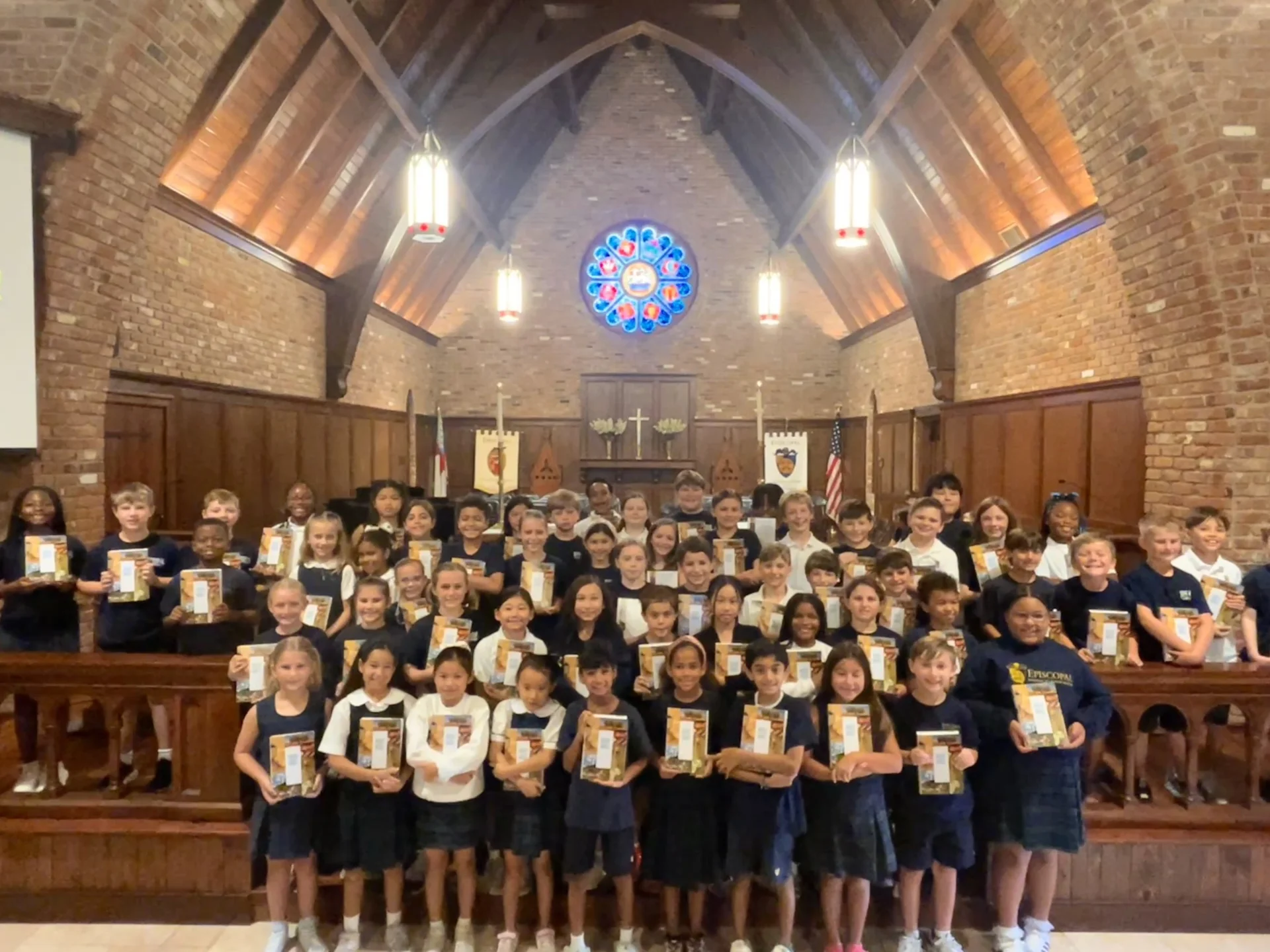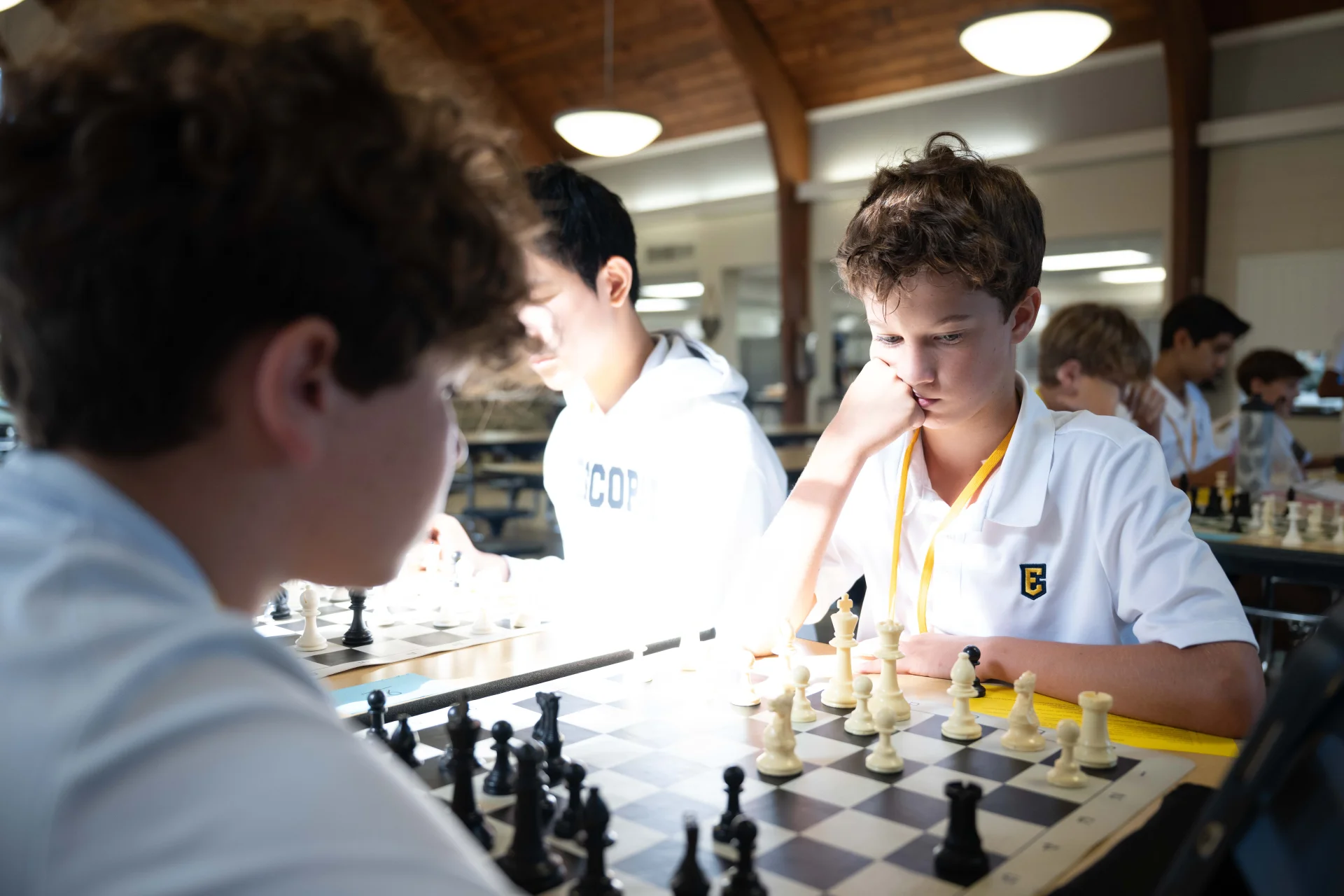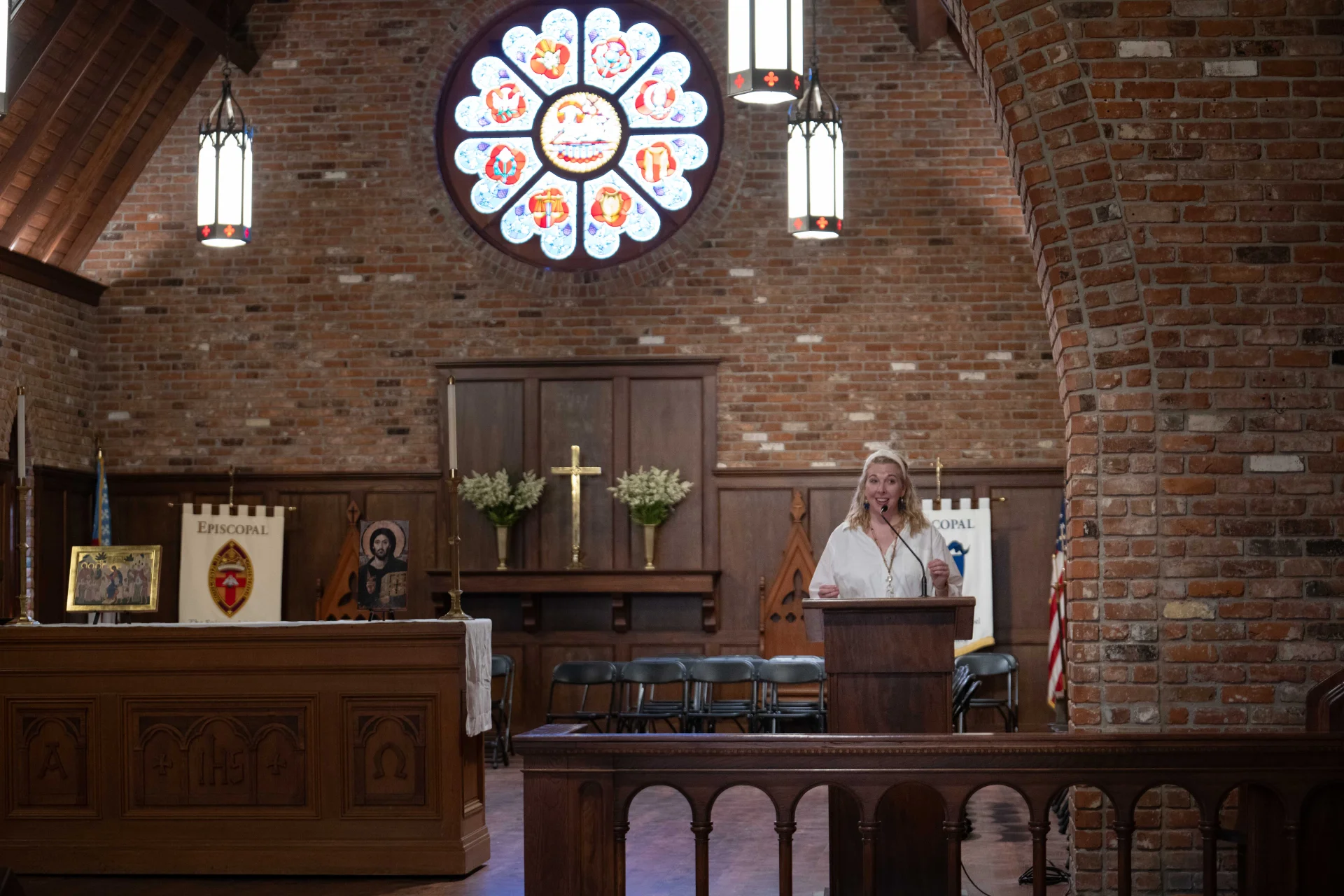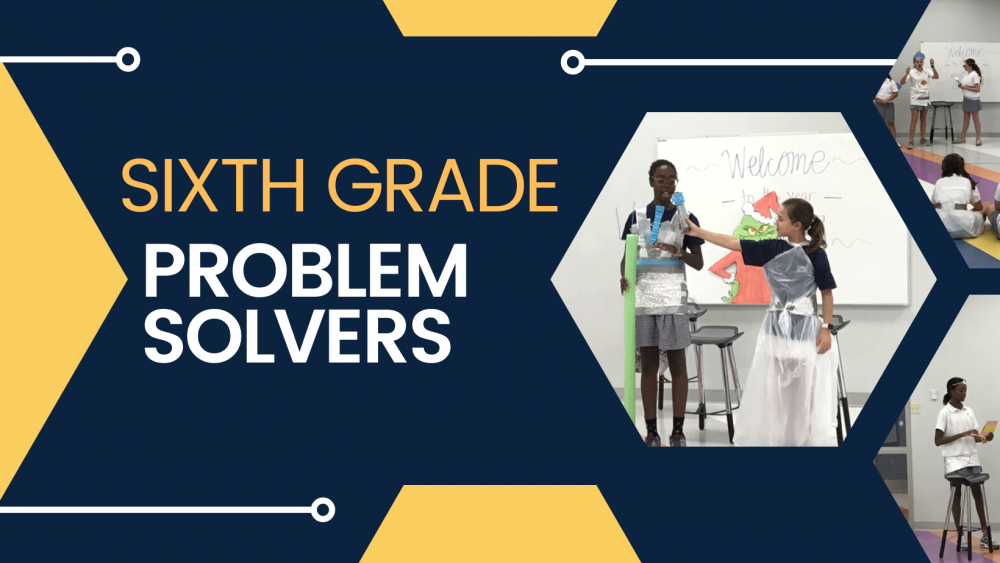- Admission
- Discover Episcopal
- Our Program
- Athletics
- Arts
- Spirituality
- Student Life
- Support Episcopal
- Alumni
- Parent Support
- Knightly News
- Contact Us
- Calendar
- School Store
- Lunch Menu
« Back
Sixth Grade Problem Solvers Showcase Solutions
January 6th, 2022
.png?v=1641502965116)
It is remarkable what inquisitive sixth graders can do with a little tinfoil, duct tape, pool noodles, paper towels and garbage bags. Recently, students tackled a problem previously posed by the Future Problem Solving Program International. Students were given a futuristic scenario set in the year 2065 in which a corporate giant dominates the fish hatchery industry. The fictitious Poseidon Company is genetically modifying fish to be rich in iron and protein. The company donates 20% of the fish to nations in poverty to assist with world hunger, but is this practice really a good thing? Students were challenged to identify problems and possible solutions for this scenario.
Co-teachers Virginia Day and Elizabeth Lewis say the project exercised the students’ critical thinking, adaptability and problem-solving skills. In Day’s social studies class, students are studying agriculture, which includes growing crops and raising and domesticating animals. Students are learning about past, present and future agriculture practices, making the Future Problem Solvers challenge an ideal fit. As students worked on their problems and solutions, Day interjected highlights from previous classroom discussions, connecting the dots to the curriculum. After discovering a problem and developing a solution, students wrote an action plan. The final step in the process was to create a skit illustrating what they learned and how their solution would address the problem.


“I’m kind of blown away at the skits,” said Day as students wrapped up a round of presentations. Using the designated supplies, students addressed everything from challenges for vegetarians and people with fish allergies to health risks of consuming large amounts of genetically modified foods. Tinfoil became aprons, and duct tape transformed into a microphone. Students certainly flexed their creative capabilities.
Dr. Lewis says the social studies lesson is just one example of how problem-solving exercisescan enhance the curriculum. Incorporating a problem-solving challenge can also engage students and provide them the opportunity to think critically, which is a key component of an Episcopal education.
Future Problem Solving Program International’s mission is “to develop the ability of young people globally to design and achieve positive futures through problem solving using critical and creative thinking.” According to the FPSPI website, the program was developed in 1974 by Dr. E. Paul Torrance. Since that time thousands of students in grades fourth – twelfth have participated in its problem-solving challenges.
For the last 50+ years, Episcopal faculty and staff have prepared students to lead lives of meaning and purpose. Alumni are making a difference all over the world. No doubt, this sixth grade class of problem solvers will continue this legacy. It will be exciting to see how they shape the future.
The Episcopal School of Baton Rouge 2025-2026 application is now available! For more information on the application process, to schedule a tour, or learn more about the private school, contact us at [email protected] or 225-755-2685.
Posted in the categories All, Middle School.
Other articles to consider
 Sep11A Tradition of Faith and Community: The Fourth Grade Bible Blessing
Sep11A Tradition of Faith and Community: The Fourth Grade Bible BlessingLower School celebrated a milestone as fourth grade students received new Bibles.
See Details Sep11Introducing the Class of 2026 National Merit Semifinalists and Commended Scholars!
Sep11Introducing the Class of 2026 National Merit Semifinalists and Commended Scholars!Introducing the Class of 2026 National Merit Semifinalists and Commended Scholars!
See Details Sep5Building Community through Chess
Sep5Building Community through ChessMembers of the Middle School Chess Club describe it as a fun opportunity to become a better chess player. Read more about this club that has recently experienced tremendous growth.
See Details Sep4Finding Joy and Community in New Experiences
Sep4Finding Joy and Community in New ExperiencesCarrie Poynot challenges others not to fear failure and to find joy in trying new things. Read her recent Upper School Chapel message.
See Details
Categories
- All
- Admission
- Athletics
- College Bound 2019
- College Bound 2020
- College Bound 2021
- College Bound 2022
- College Bound 2023
- College Bound 2024
- College Bound 2025
- Counselors Corner
- Episcopal Alumni
- Giving
- Head Of School
- Lower School
- Middle School
- Spirituality And Service
- Student Work
- The Teachers' Lounge
- Upper School
- Visual And Performing Arts











